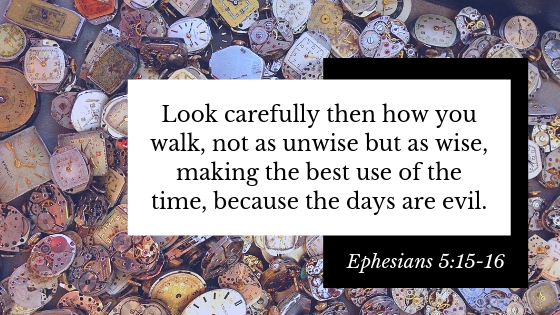We all have 24 hours. The main difference between winners and losers is how they make the most use of their available time. Some use it to improve themselves and do what matters to them; others simply waste it in seeking comfort and pleasure.
You will be surprised at how much you can accomplish and how much life satisfaction you can experience, if you simply stop the self-sabotaging habit of making excuses and start working as hard as you can for a week.
When I first taught at Trent University in its early days, many professors did not do much research, using the heavy teaching load and lack of research support in a small teaching university as their excuses, but I still managed to get research grants and publish many papers in addition to my other responsibilities in Christian ministry.
Now, I do not have any institutional support, nor do I have any research money or research facilities. In addition, I have to spend so much time visiting different medical doctors and staying in the hospital. But all these constraints have not stopped me from being productive. In fact, knowing that I only have limited time to live, given my old age and cancer, I am even more motivated to complete my mission on earth.
This does not mean that I am a workaholic and do not have time for people or relaxation. In fact, I spend just as much time, if not more, in entertainment, socializing, or caring for family and friends as an average person. The difference is that I know how to make the best use of my available time and how to maintain an optimal balance between work and life.
Here are 7 Tips for Productive Time Management
1) Be purposeful and intentional in everything you do. For instance, even when watching TV or movies, I always try to learn something about people and life, then I write down what I learned.
2) Don’t stop working because of the lack of reinforcement or recognition; do your best for God and for the intrinsic value of your work for humanity.
3) Don’t wait for the perfect time to get started on any project. Start as soon as you can find 10 minutes. It’s amazing how many big projects you can accomplish by making good use of those small opportunities. That’s why I always carry a writing pad with me and write whenever I have a few minutes of free time.
4) Think strategically and work smart. Simply working hard does not get you very far, so do what will most likely pay off. Time is everything, and skill is the key to success. Shooting a lot without scoring any goal will not make you a good hockey player.
5) There are always better ways to get things done. I practice continued improvement in whatever I do. Don’t be satisfied that you are doing something—ask yourself whether you are doing it better than yesterday.
6) Don’t seek perfection before you submit a paper or complete a task; otherwise, you will never get anything done. Excellent outcome is a process of continual improvement.
7) Do not be afraid of failure. In fact, I have made a career out of the experience of being rejected and marginalized all my adult life simply because of my race, religion, accent, and original ideas. I know that I cannot eliminate racism or elitism, but I have learned how to get around all the barriers created by such discrimination.
As a Chinese in North America, I have achieved some success. You can succeed too, if you know how to make the most use of your time.
Cite
Wong, P. T. P. (2019, May 7). How to be your best by making the most of your time. Dr. Paul T. P. Wong. Retrieved from http://www.drpaulwong.com/how-to-be-your-best-by-making-the-most-use-of-your-time/
